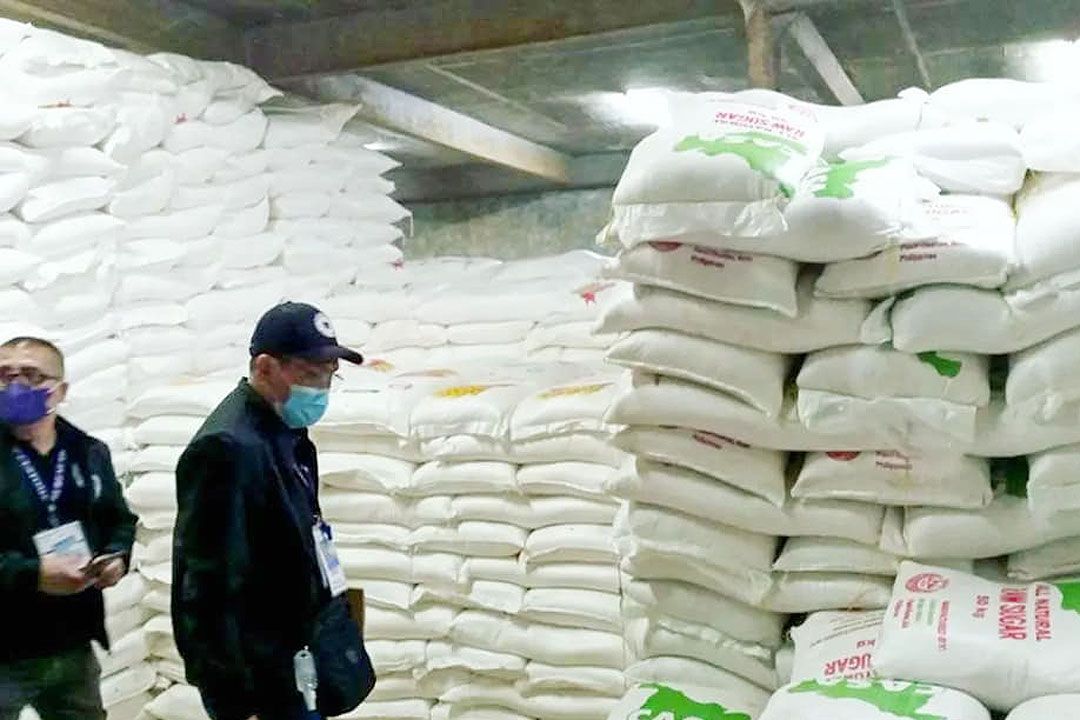Sugar producers under the Confederation of Sugar Producers Associations Inc. (Confed) said there was no need to import sugar this year, as inventories are sufficient to last until the start of milling season late this year.
This, after the Department of Agriculture (DA) bared last week that it is allowing 200,000 metric tons of sugar to be shipped into the country, mostly on the behest of industrial users like the food and beverage sector.
Confed president Aurelio Valderrama Jr. said the current rates of withdrawal from reserves indicate that inventory levels are ample, and can hold out until milling starts, Business World reported.
“We reiterate that any sugar import plan should be data-based, calibrated, totally transparent and fair, done in consultation with the industry and therefore immune from speculation and manipulation,” he added.
DA Secretary Francisco Tiu Laurel Jr. last week said the agency will clear the importation of 200,000 metric tons (MT) of refined sugar to plug possible supply gaps during the milling offseason.
The national raw sugar inventory as of June 9 was up 29.3 percent during the 2023-2024 crop year to 436,229 MT, based on data of the Sugar Regulatory Administration (SRA).
Stocks of refined sugar, meanwhile, rose 14.1 percent to 492,985 MT during the current crop year.
Strong demand
Senior Researcher Roehlano Briones of the state think tank Philippine Institute for Development Studies (PIDS) said the planned imports are limited and would not bring down sugar prices during the milling offseason.
“Even with a bigger harvest, there may be strong demand. The problem is, the amount (for import) is limited to what will keep prices from rising, rather than (volumes sufficient to) bring sugar prices down,” Briones told Business World.
Calixto Chikiamco, president of the Foundation for Economic Freedom (FEF), said that the government should let the private sector determine the demand and supply situation and “let them import to stabilize supply.”
The SRA’s Sugar Order No. 2 allowed buyers of domestically produced sugar to participate in the government’s import operation.
El Niño’s effects
Valderrama said that the SRA has yet to announce the start of the milling season of the 2024-2025 crop year.
He added that no crop estimates have been released for the new crop year, which has been affected by El Niño.
Last year, the SRA estimated a 10-15 percent decline in sugarcane production due to the effects of El Niño.
SRA Administrator Pablo Luis Azcona said at the time that El Niño has inflicted damage on sugarcane due to be harvested in October.
It added that parts of Batangas, Southern Negros, and Mindanao have reported extensive sugarcane damage due to dry conditions.
Buffer stocks
“Confed is asking SRA to begin consulting with the industry to discuss sugar policy for Crop Year 2024-2025,” he said.
Laurel estimates the deficit at 200,000 MT which should arrive by September to fill the gap before harvesting and refining.
“The current stocks will go down by August, September, so we have to have gap sugar of 200,000 MT at least by September, October, so that the milling season [can proceed uninterrupted],” Laurel told reporters.
Laurel said the sugar order for this importation can be expected this current month of July when he meets with SRA, which he chairs.
The United Sugar Producers Federation (UniFed) said it approves of the Department of Agriculture’s (DA) plan to import refined sugar to fill the shortage before harvest in September, said UniFed president Manual Lamata in a statement.
“Harvest this coming crop year will be delayed due to El Niño and when we were consulted about this matter, we approved the proposal,” he added.
Azcona said the timing of the import will be finalized during the meeting of SRA first week of July, said Business Mirror.
He added the program that Laurel referred to is Sugar Order No. 2, which prequalified traders in future programs for sugar importation based on their purchase of local raw sugar and that SO2 increased the farmers’ price to a stable P2,700 to P2,800 per bag of raw sugar, which also stabilized retail refined prices at P73 to P100 per kilo.
“This program prequalified an import volume of almost 200,000 [metric] tons of refined sugar and was planned in [January] and formally signed on March 8, 2024,” Azcona explained.
He added that the agency has prequalified and pre-allocated based on traders’ actual support for the local farmers.
Photo Courtesy: Business World
#WeTakeAStand #OpinYon #DA #UniFed #FEF #ConFed
